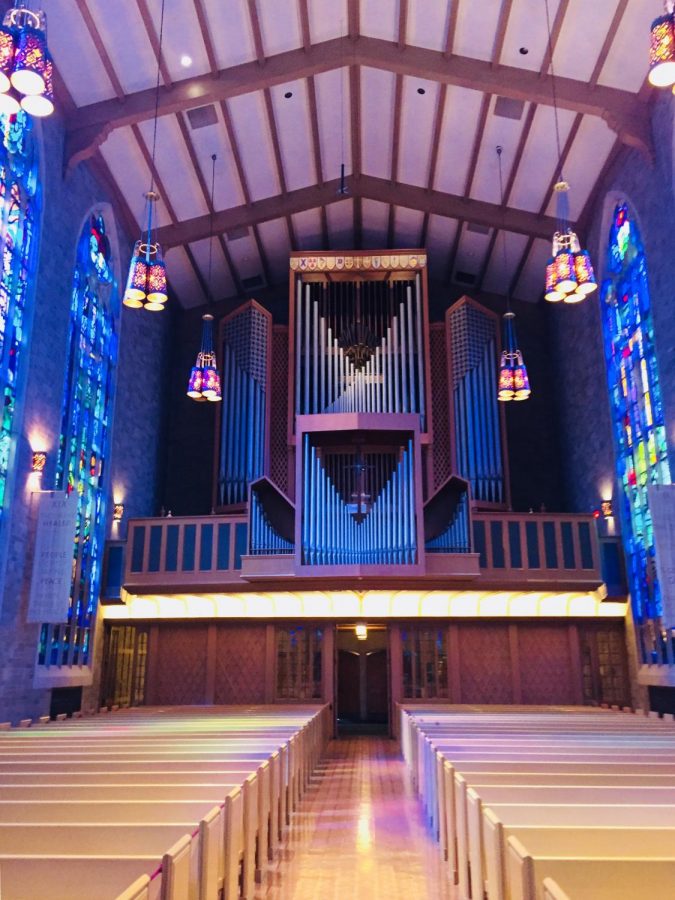Alice Millar Chapel organ continues 54-year legacy
Melanie Lust/The Daily Northwestern
The Aeolian-Skinner organ has been used for performances at the Alice Millar chapel for 54 years. Once played by hundreds of organ majors at Northwestern University, it is now mostly used for Sunday services and weddings.
August 12, 2018
When visitors from across the globe walk into the Alice Millar Chapel at 1870 Sheridan Road, they are immediately welcome by wall-to-wall stained glass installations. The designs are among the most well-known on Northwestern’s campus and illuminate the central aisle of the chapel with rainbow light.
But just above the iconic stained glass installations, a massive instrument dominates the ceiling. Made up of thousands of metal pipes, ranging from half an inch to 32 feet in height, the pipe organ glistens in the multi-colored light. This historic organ was installed when Alice Millar was first constructed over 50 years ago, and it will extend its legacy into the summer from this lofty alcove.
At 5,235 pipes, the Aeolian-Skinner organ is one of the largest in the greater Chicago area, according to the Organ Historical Society. It’s also one of the oldest, and its history is rich with famous repertoire and beloved players.
The chapel does not host services over the summer, but Alice Millar music director Stephen Alltop ensures the organ is put to use by organizing concerts with a variety of local and student ensembles, presenting to music students and practicing on his own throughout the summer season.
“The organ is old, but it’s in very good shape, and it is an organ that plays lots of music very well,” Alltop said. “I feel very privileged to play this organ.”
Organist Christine Kraemer (Bienen ’77), who took lessons at the Alice Millar Chapel as a Northwestern student, said she remembers the instrument as unique in both its sound and design.
As a music student at NU, Kraemer said the “eclectic” craft made it the ideal instrument to practice a diverse range of pieces and styles.
“I remember my first experience playing, I just was overwhelmed by the sound,” she said. “It was almost like having an ocean come at you, it was so full and rich. It’s a challenge to feel in control of that sound and manipulate it, but it’s so fun.”
She added that the organ was so popular with music majors that practice time had to be “rationed” in the 1970s.
In 2004, the Bienen School of Music abolished its organ department due to declining enrollment and the departure of its only professor. The decision resulted in a decline of the Aeolian-Skinner’s use, said Andrea Handley, organist at the Trinity United Methodist Church in Wilmette.
“The program was stellar,” she said. “It’s still a huge sadness in the organist community, especially since the instrument is so notable.”
Melanie Lust was a student at the Medill-Northwestern Journalism Institute this summer.
A previous version of this article misspelled the name of Andrea Handley. The Daily regrets the error.


